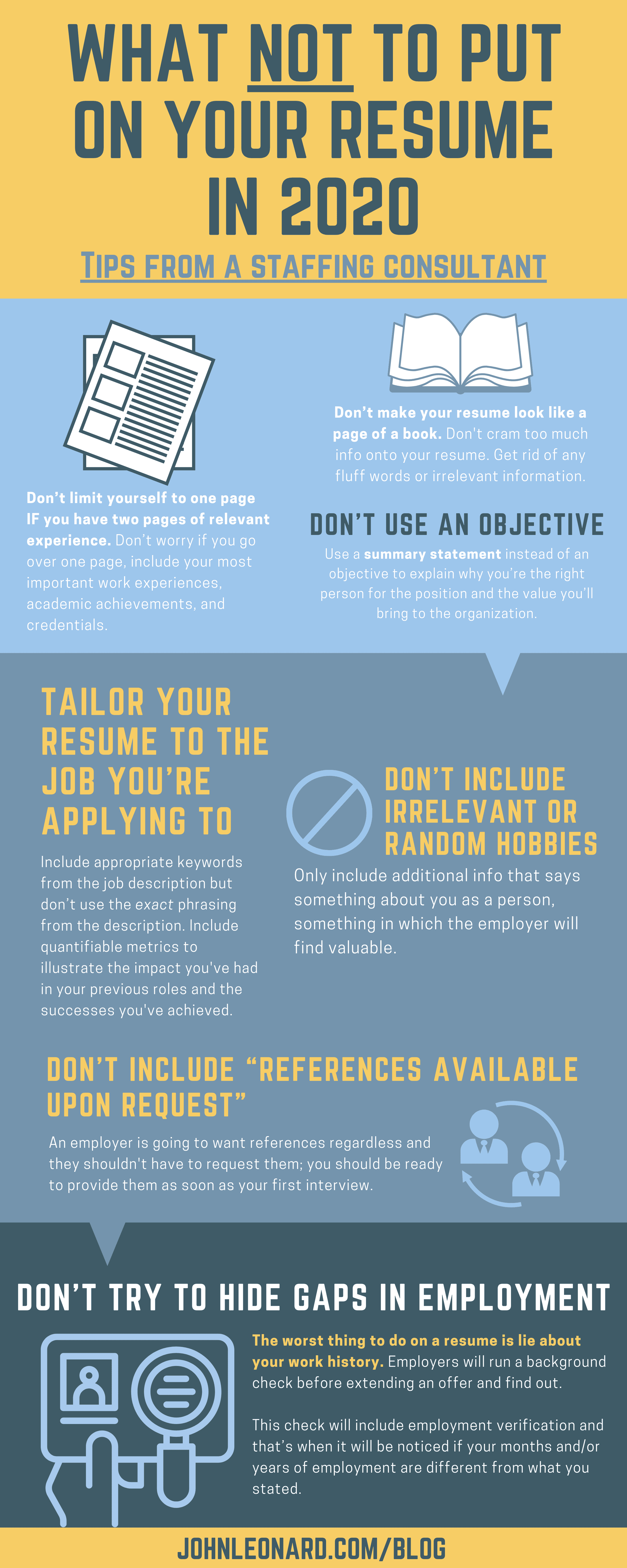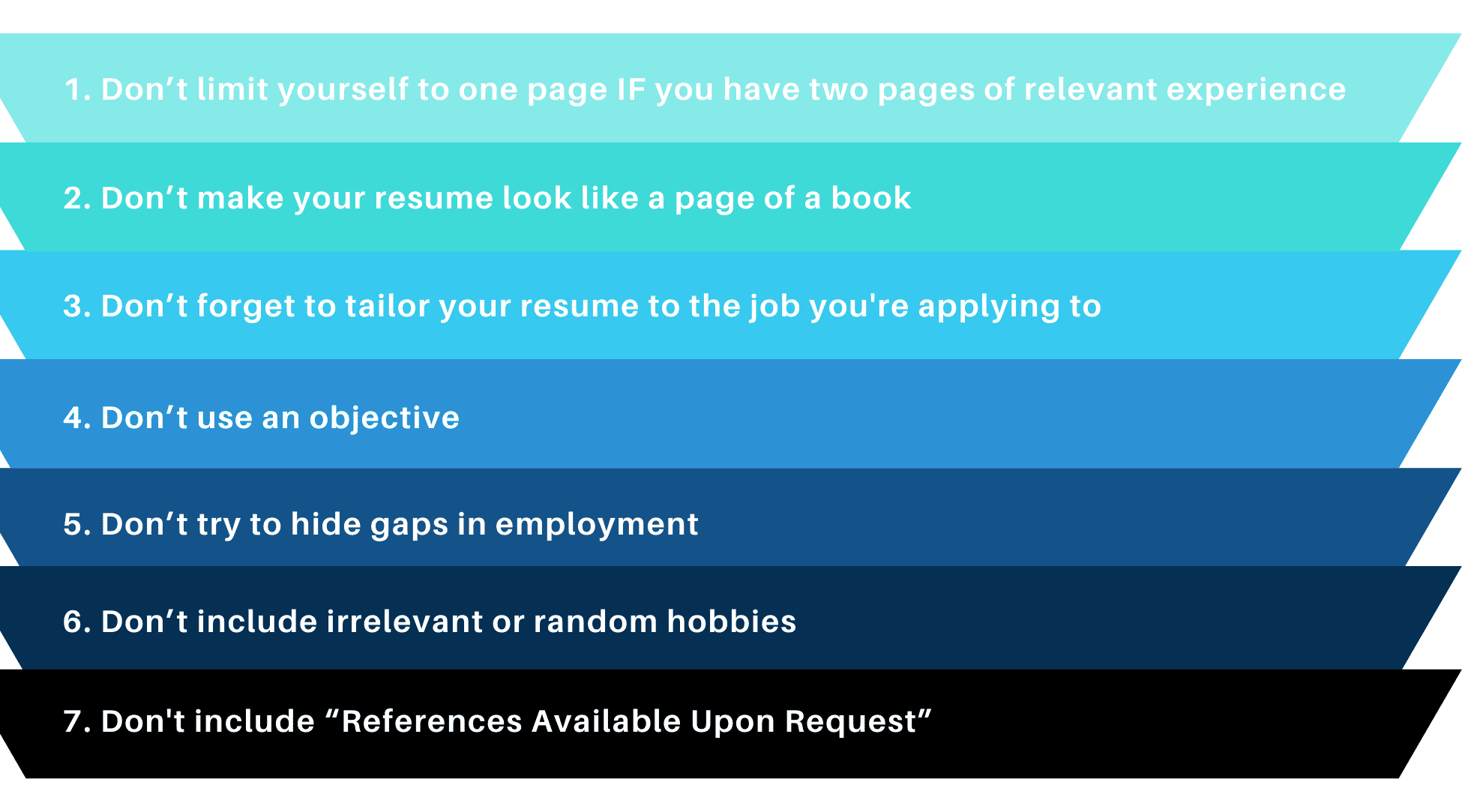
There are an endless number of resources (and opinions) out there that educate on how a proper resume should look and what information it must include. Equal consideration and thought must be given to what you should not put on your resume. All it takes for recruiters and hiring managers to send a resume to the “no” pile is one spelling or grammatical error. Yet there are many other errors one can make on their resume that will end their chances of landing an interview. To be sure your resume is up-to-date, here are seven things you shouldn’t include on your resume in 2020.
- Don’t limit yourself to one page IF you have two pages of relevant experience
Unless you’re a recent graduate or have only been working in one job, you most likely have enough experience to warrant two pages. A recent study reveals recruiters are 2.3 times as likely to prefer two-page resumes over one-page resumes. So, don’t worry if you go over one page, include your work experiences, academic achievements, and credentials.
- Don’t make your resume look like a page of a book
Because it’s acceptable to have two pages, you shouldn’t be cramming too much information onto your resume. Get rid of any fluff words or irrelevant information. Use bullet points and not paragraphs to describe your experience and accomplishments. Each bullet point should make an impact.
- Don’t forget to tailor your resume to the job you’re applying to
If you want to capture the attention of the reader and the ATS software that’s reviewing your resume. Make sure to include appropriate keywords from the job description but don’t use the exact phrasing from the description. Find similar words to showcase your skills. Also, include quantifiable metrics to illustrate the impact you’ve had in your previous roles and the successes you have achieved. Express this in a manner that’s relevant to the position and to the organization you’re applying to.
- Don’t use an objective
Your objective is to land the job you’re submitting your resume for! Use a summary statement instead to explain why you’re the right person for the position and the value you’ll bring to the company. The summary should include your skills and experience that are relevant to the role.
- Don’t try to hide gaps in employment
The worst thing to do on a resume is lain about your work history. It most certainly will catch up to you. If it doesn’t happen during the interview process, then it will when the employer performs a background check and almost every company will do so before extending an offer.
This check will include employment verification and that’s when it will be noticed if your months and/or years of employment are different from what you stated. This will likely be the end of your candidacy. It’s better to be prepared to confidently explain any gaps, why they occurred, and what you did during that time, especially if you did anything that may have strengthened your professional skill set.
- Don’t include irrelevant or random hobbies
Certain hobbies and interests may set you apart from other candidates and make you stand out. However, they’re only going to make a difference if they’re relevant to the company and the job. Include things that say something about you as a person, something which the employer will find valuable.
- Don’t include “References Available Upon Request”
An employer is going to want references and they should not have to request them; you should be ready to provide them as soon as your first interview.
 Because there are many opinions on what should not be included on a resume, I’m sure there are other things that could be added to this list. However, by keeping all this in mind when you are creating or editing your resume, you’ll be assured you’re avoiding some of the costliest mistakes.
Because there are many opinions on what should not be included on a resume, I’m sure there are other things that could be added to this list. However, by keeping all this in mind when you are creating or editing your resume, you’ll be assured you’re avoiding some of the costliest mistakes.
Want more information that will help you to succeed in your career? Subscribe to our JOHNLEONARD blog below and receive the latest career advice!
